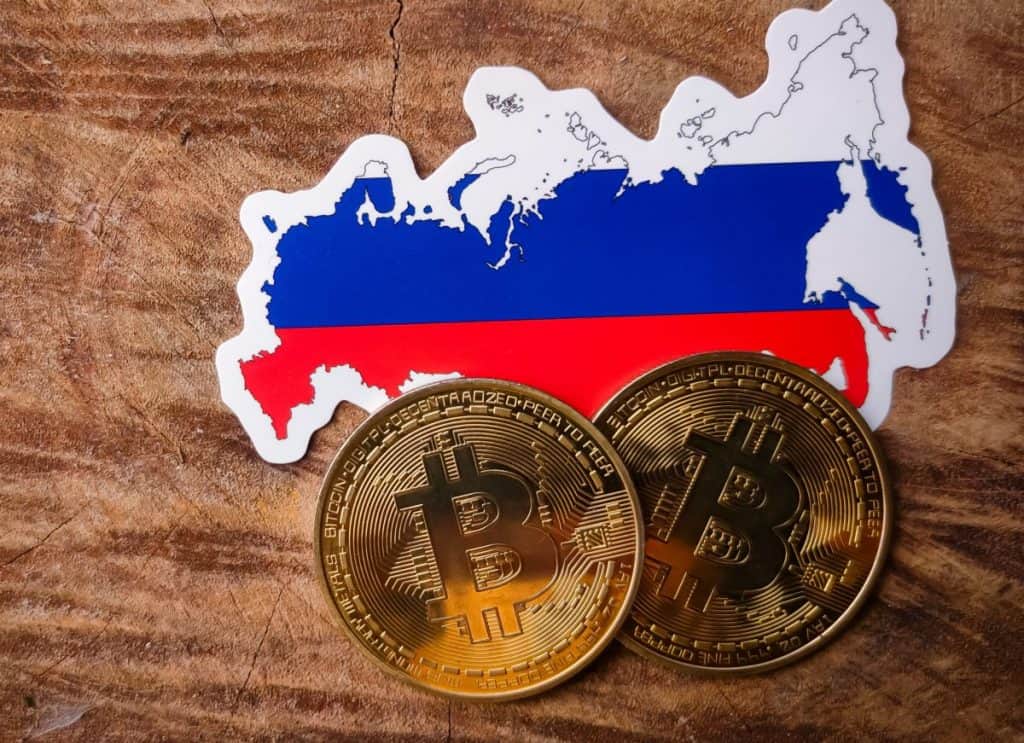Sberbank, a leading bank in Russia, has developed a cryptocurrency solution for its customers experiencing the fallout from Ukraine-related sanctions.

Amid the ongoing war in Ukraine, Russia is grappling with significant sanctions, including being disconnected from SWIFT—the major global system for executing financial transactions. This disconnection means that Russian debit and credit cards can no longer be used for transactions outside the country, neither in physical retail nor online.
The United Nations estimates that over 10 million Russians currently reside abroad. Many savvy users and businesses have turned to cryptocurrency exchanges since their ability to conduct international transactions has been severely restricted.
Nonetheless, most cryptocurrency platforms have enforced specific limitations on users from Russia. For example, in March, Coinbase suspended over 25,000 accounts belonging to Russian citizens, stating that restrictions applied to accounts holding more than $10,000. By May 31, they extended this ban to all accounts, regardless of their balance.
Additionally, the Ukrainian exchange Qmall has also suspended accounts belonging to users from Russia and Belarus, which includes freezing the assets of these individuals.
Binance, the largest cryptocurrency platform, has limited access for Russian users with balances exceeding €10,000, although these users can still withdraw their funds. The UK-based exchange EXMO has chosen to create a distinct platform specifically for users from Russia, Belarus, and Kazakhstan.
Initially, South Korean exchanges such as Upbit, Bithumb, and Korbit blocked Russian residents but later opted to allow them access to their platforms.
It's worth noting that many exchanges have specifically blocked individuals listed in the sanctions, encompassing Russian governmental officials, their relatives, and affluent business leaders. Some platforms require users to disclose information regarding the origin of incoming funds and details about outgoing transactions.
In response to the pressure, it appears that Russia is adapting. Despite initial doubts about cryptocurrencies, the government enacted legislation in 2020 permitting licensed entities to issue digital assets. For example, this past February, the Bank of Russia greenlit the Swiss firm Atomyze to operate as a digital asset issuer.
Sberbank, Russia's leading bank, rolled out its blockchain platform back in 2019. In March, it secured a license to issue digital financial products and, on July 9, they launched their first digital asset, marking a significant step with a transaction valued at 1 billion roubles (roughly $16 million). Their future plans include offering cryptocurrencies and various digital assets exclusively for their corporate clientele.
"We are optimistic about the potential of our platform, as moving towards a digital format streamlines the issuance of financial instruments and decreases the entry barrier to the market,\" remarked Anatoly Popov, Sberbank's Deputy Chairman. SberFactoring Sberbank's partner, a fintech startup named Lighthouse, entered the blockchain arena and successfully processed their first cash-backed digital financial product transaction on June 29.
$34 million has been secured within the AkuDreams contract, and users are now receiving refunds.
The second biggest lender in Russia, VTB Pussy Riot has unveiled a new NFT collection titled ‘Proof of Protest.’
Read related posts:
Disclaimer
In line with the Trust Project guidelines With a Master’s in Public Communications, Valeria is also pursuing a second major in International Business Management. In her leisure time, she enjoys photography and fashion styling. Starting her first fashion blog at just 13 years old sparked her enduring passion for both journalism and style.







